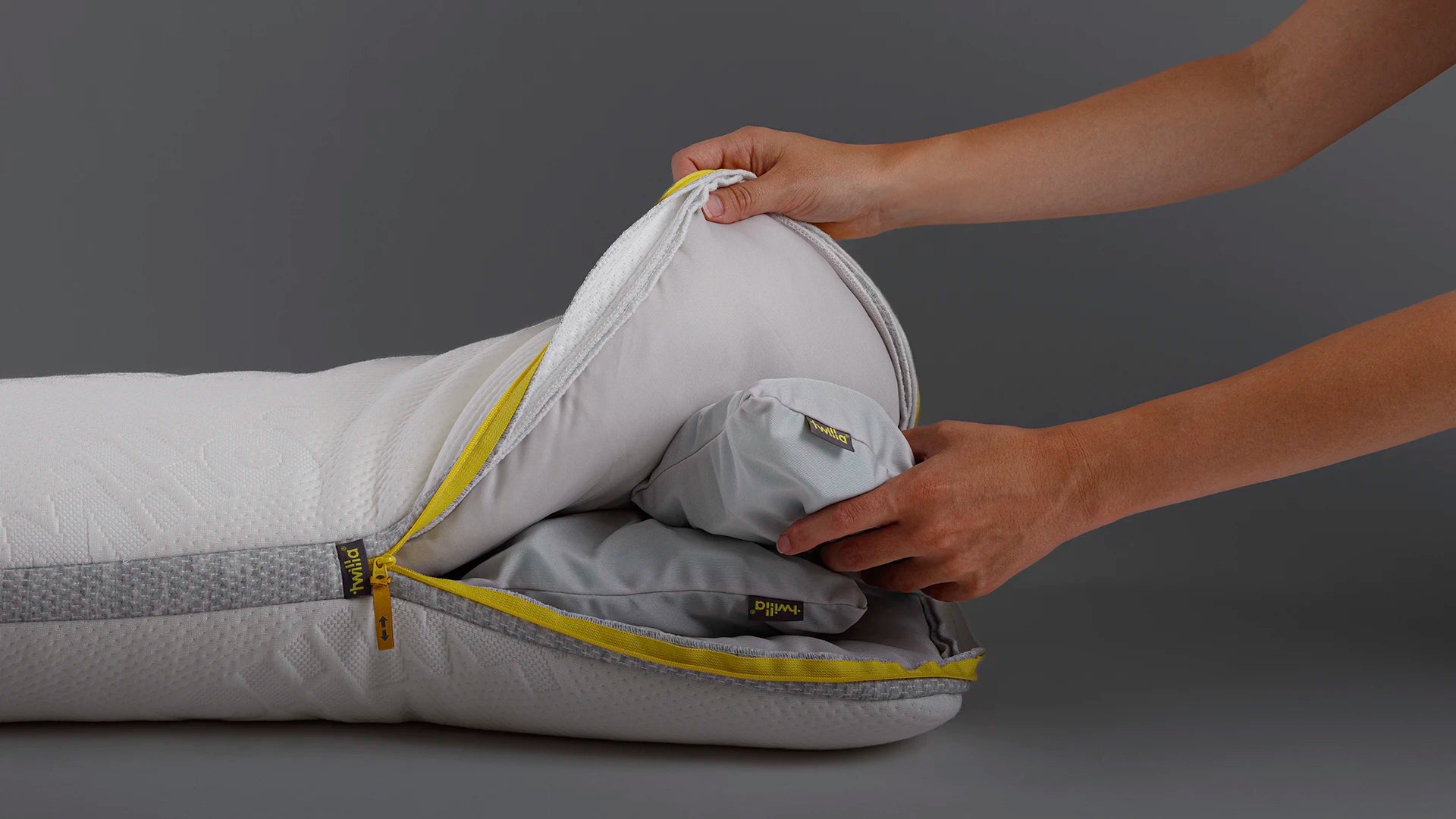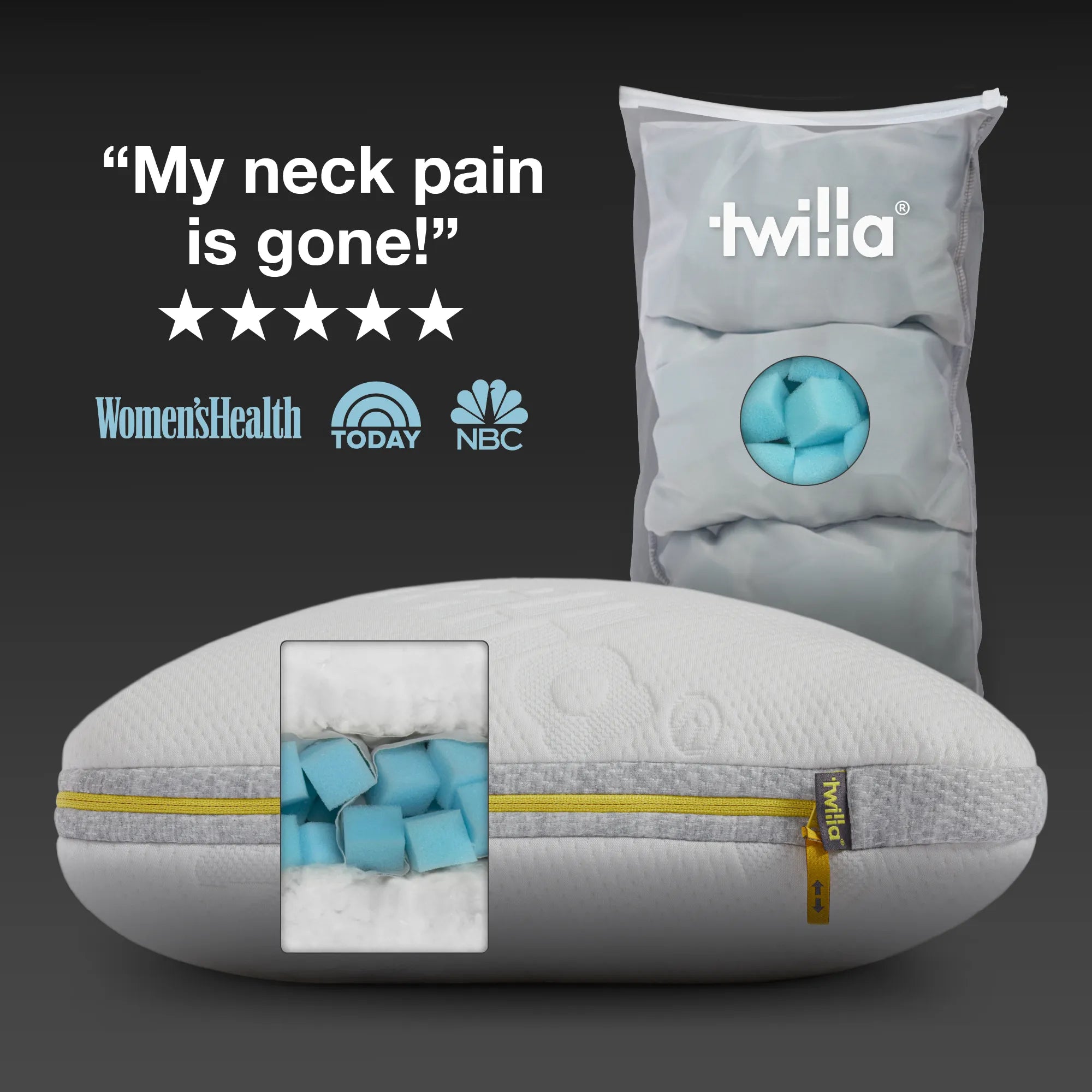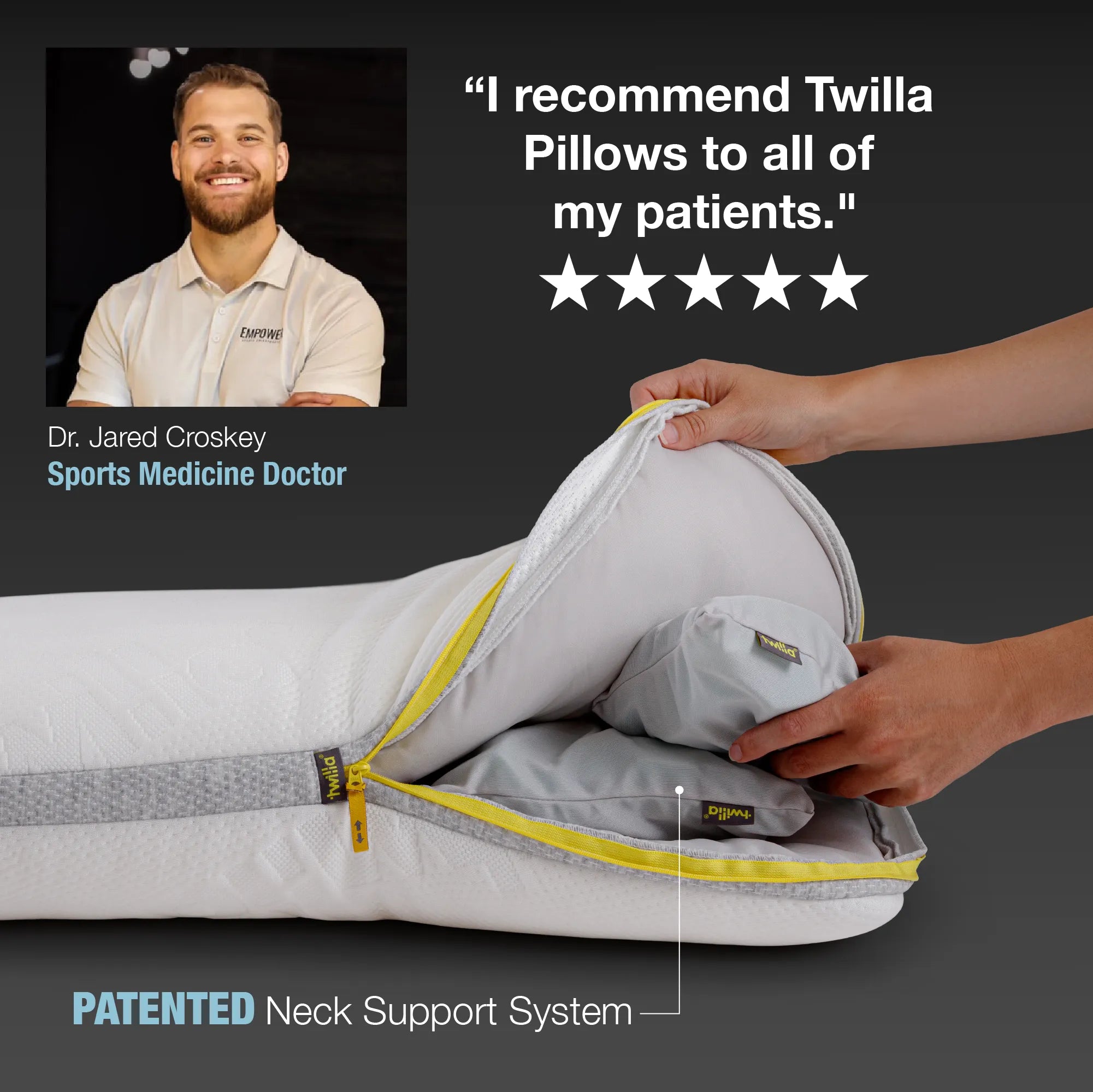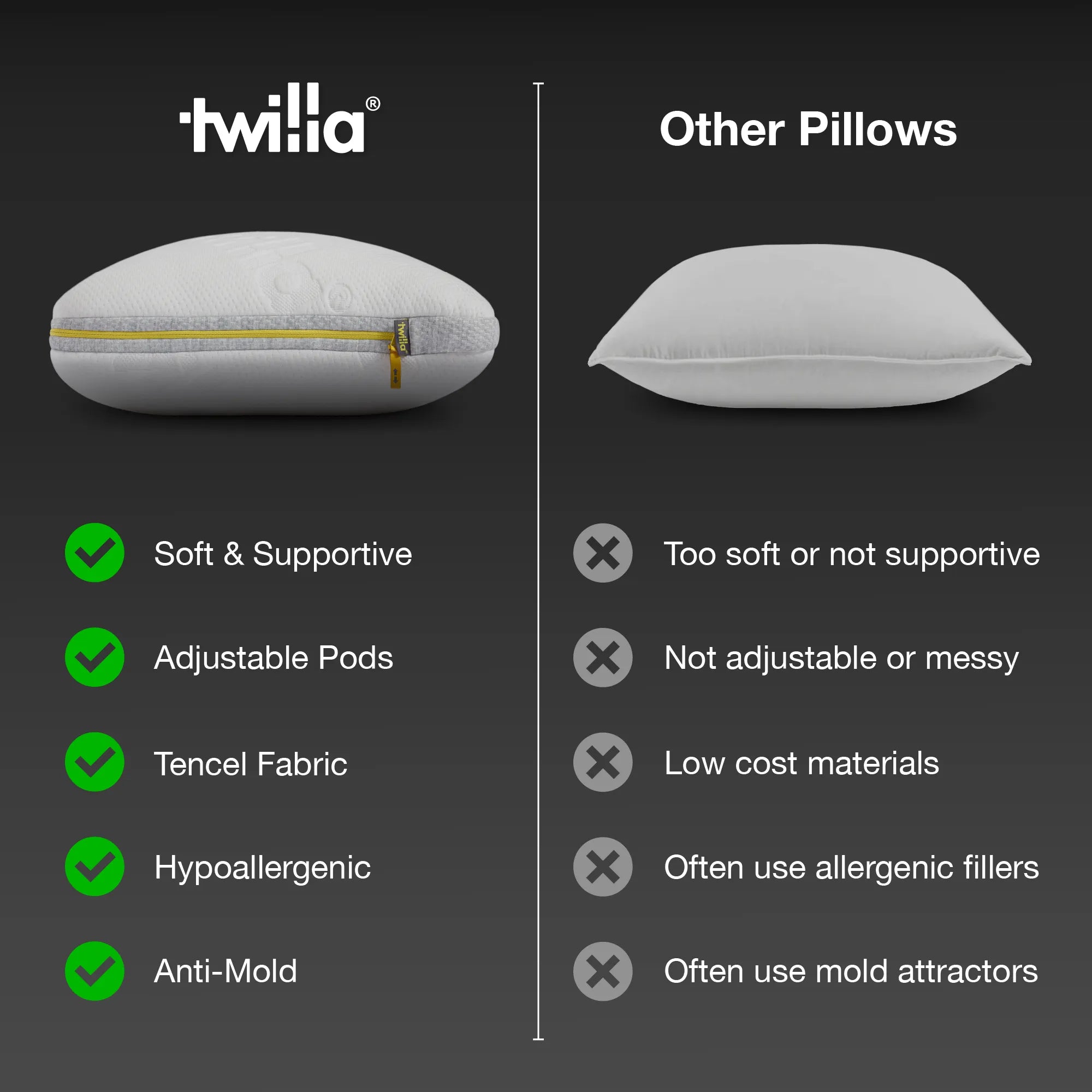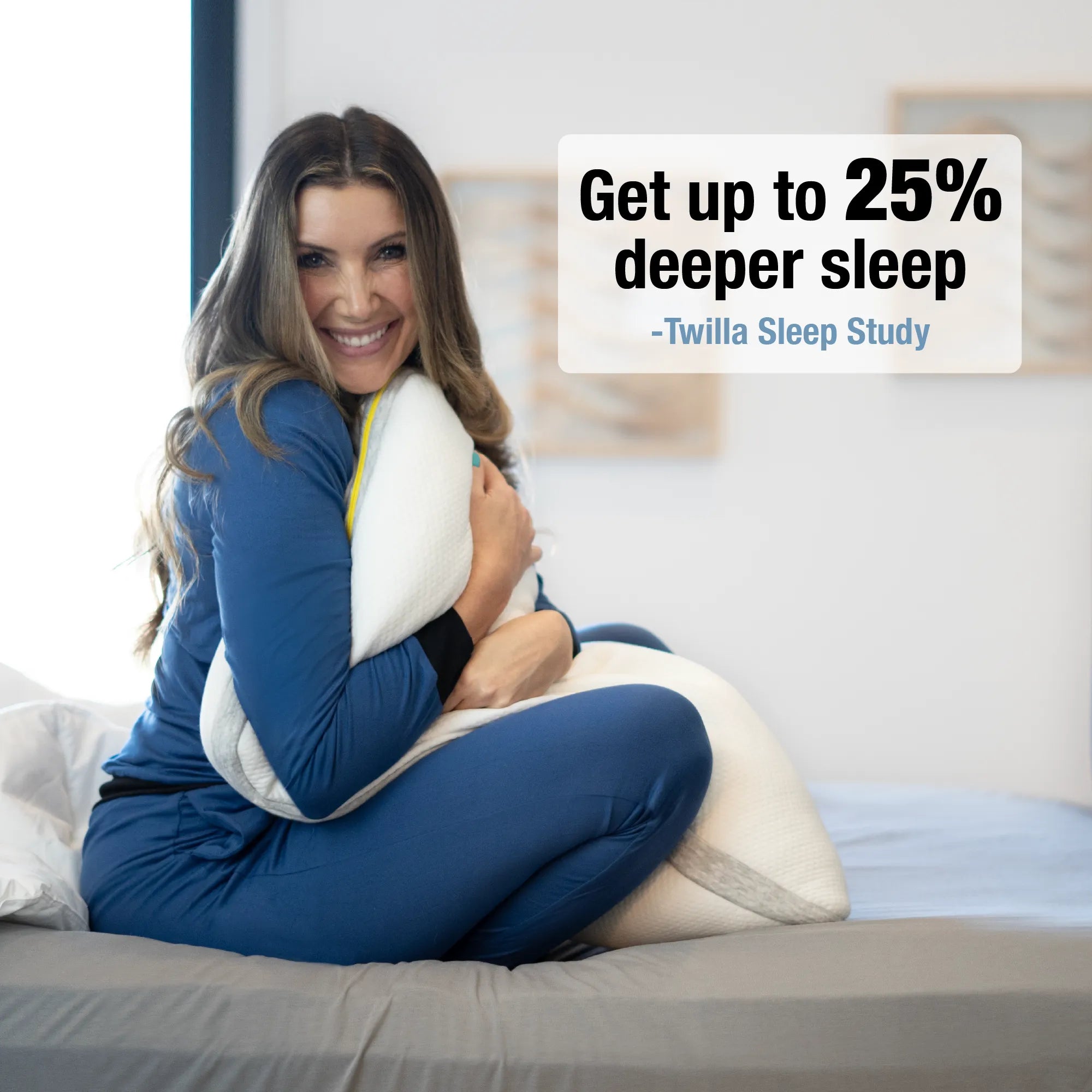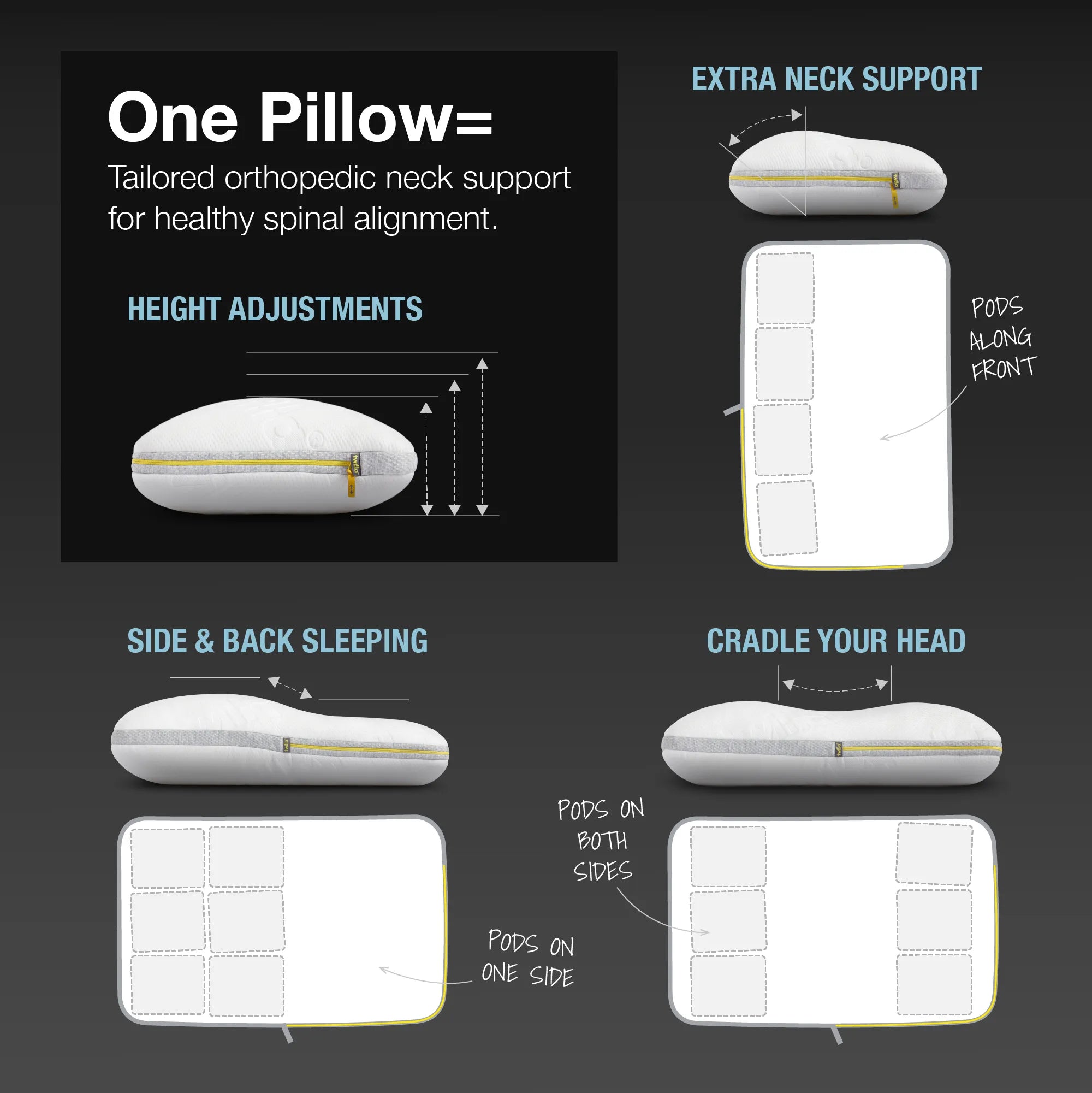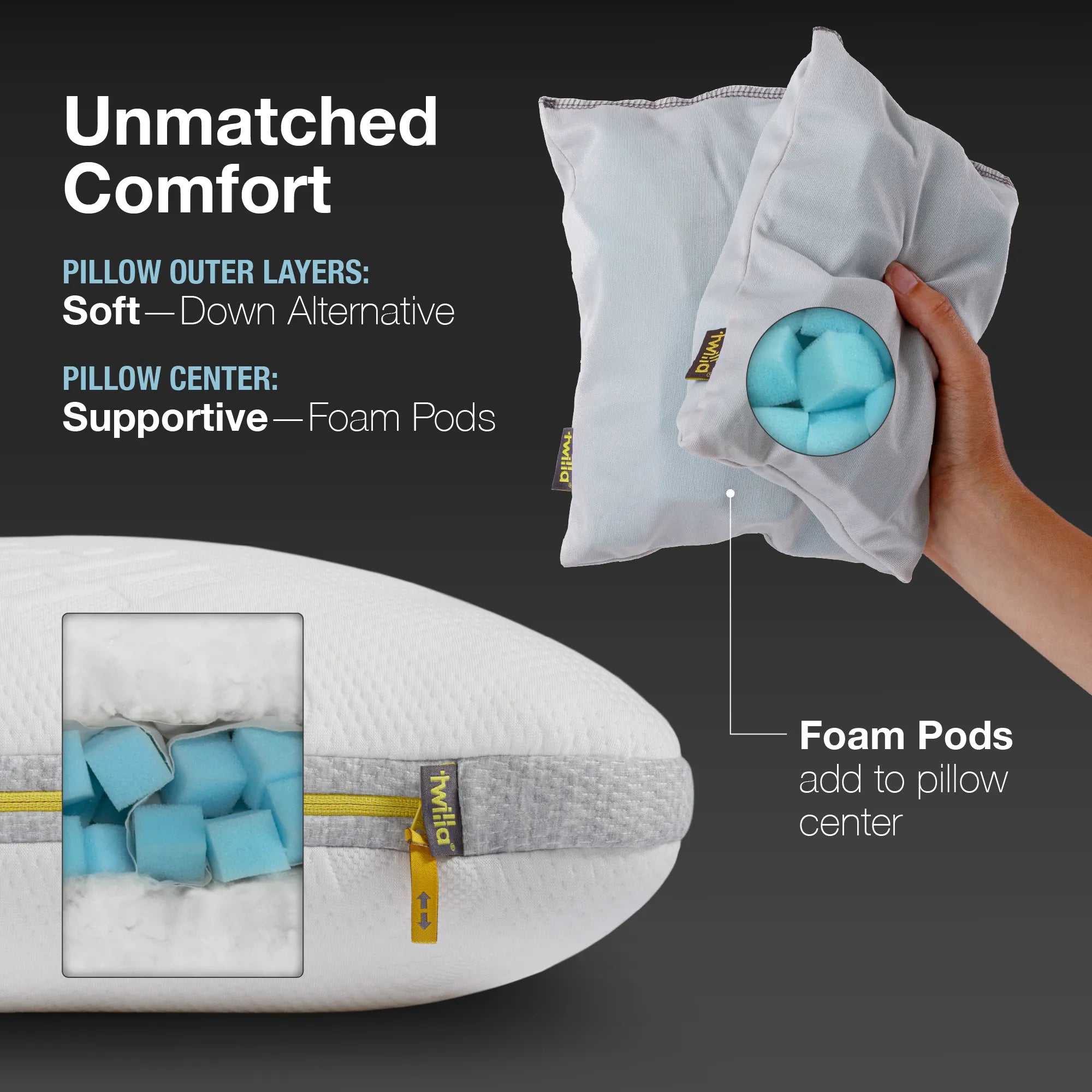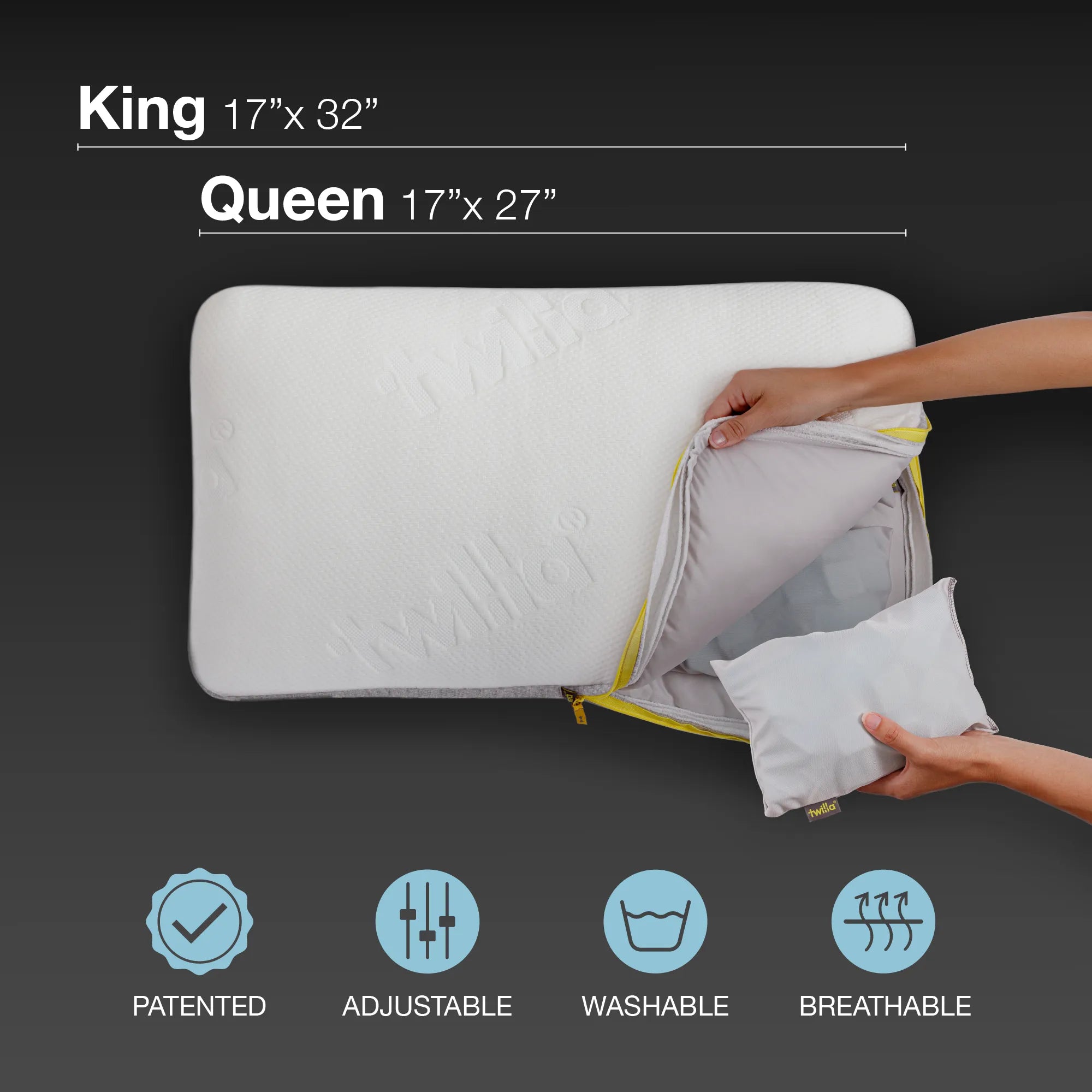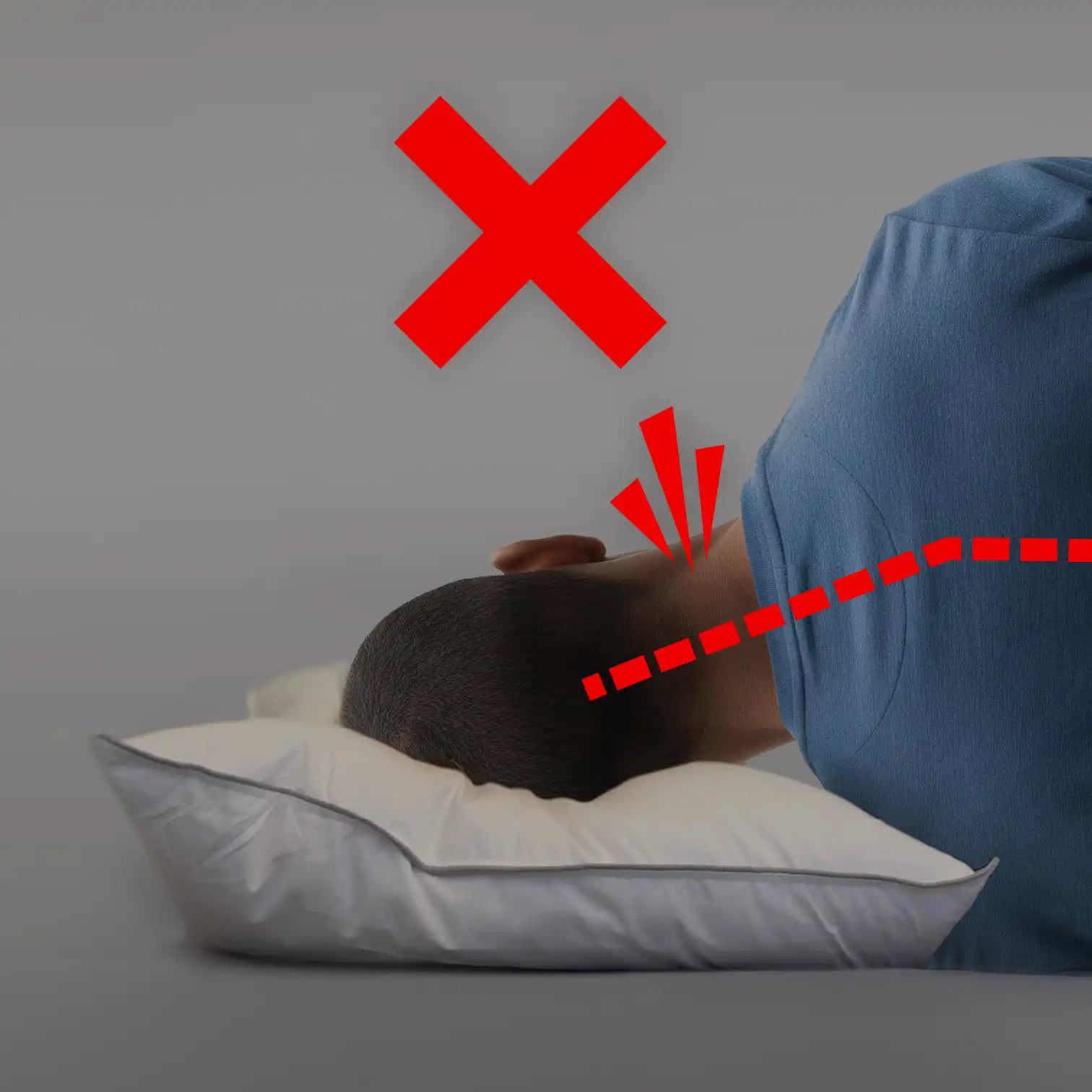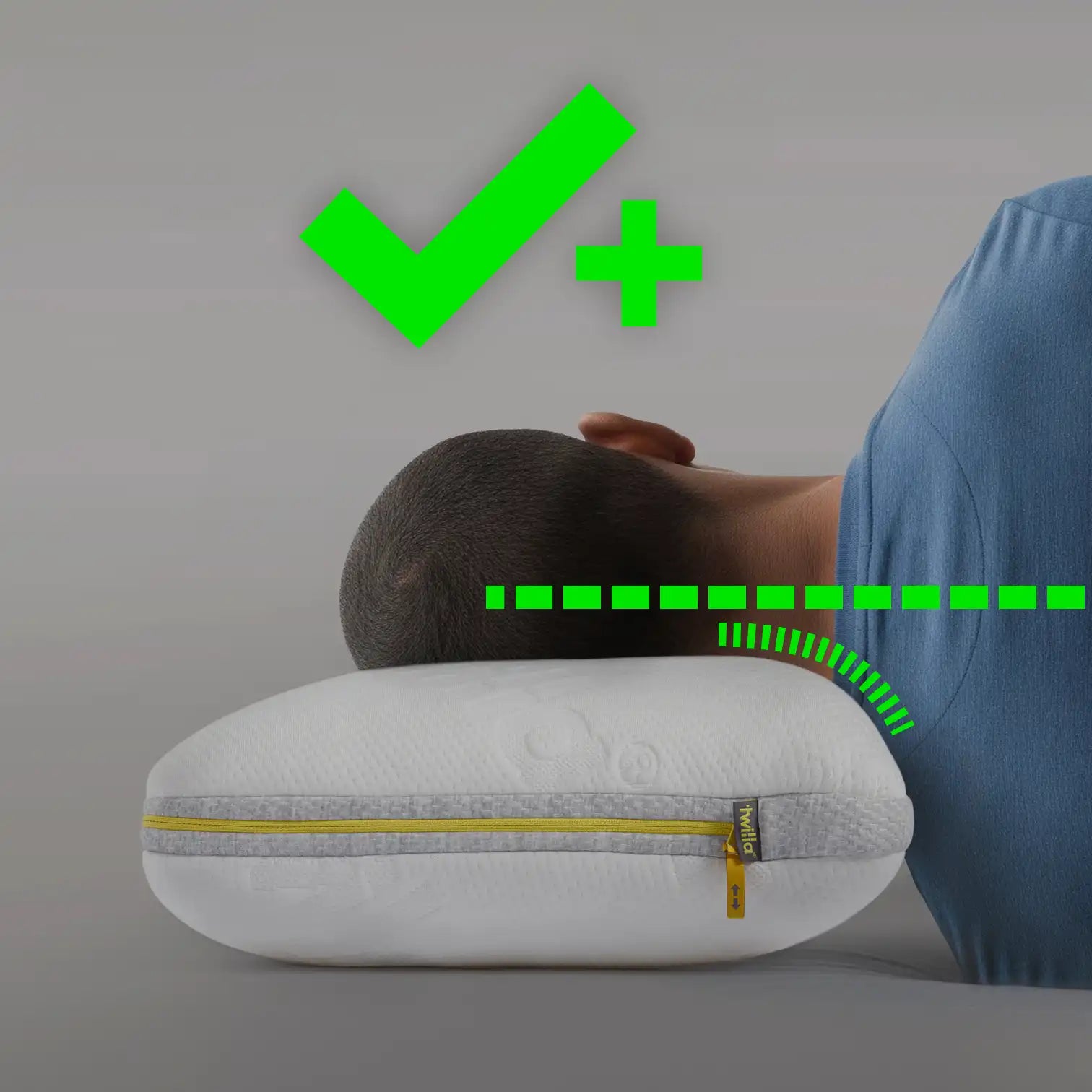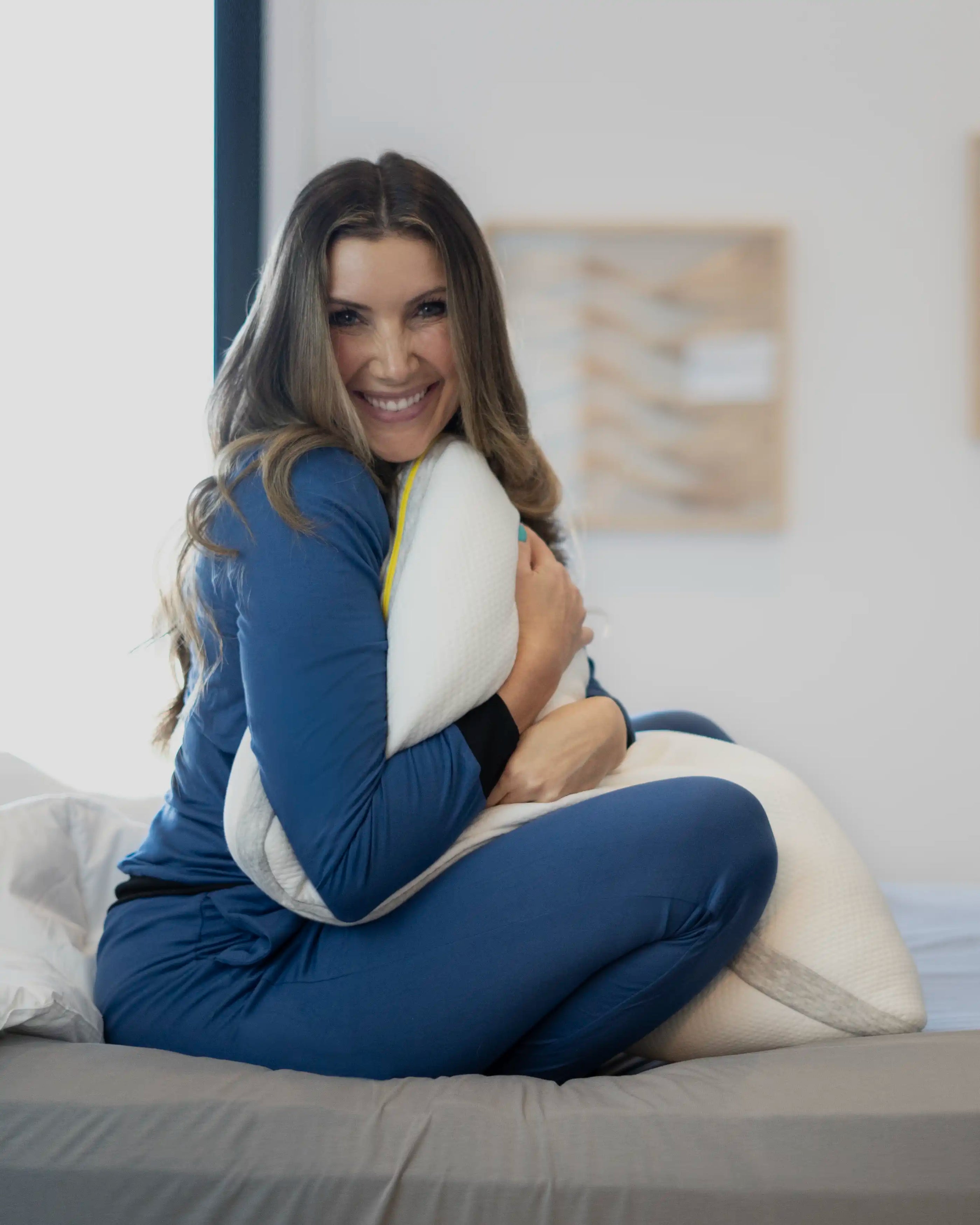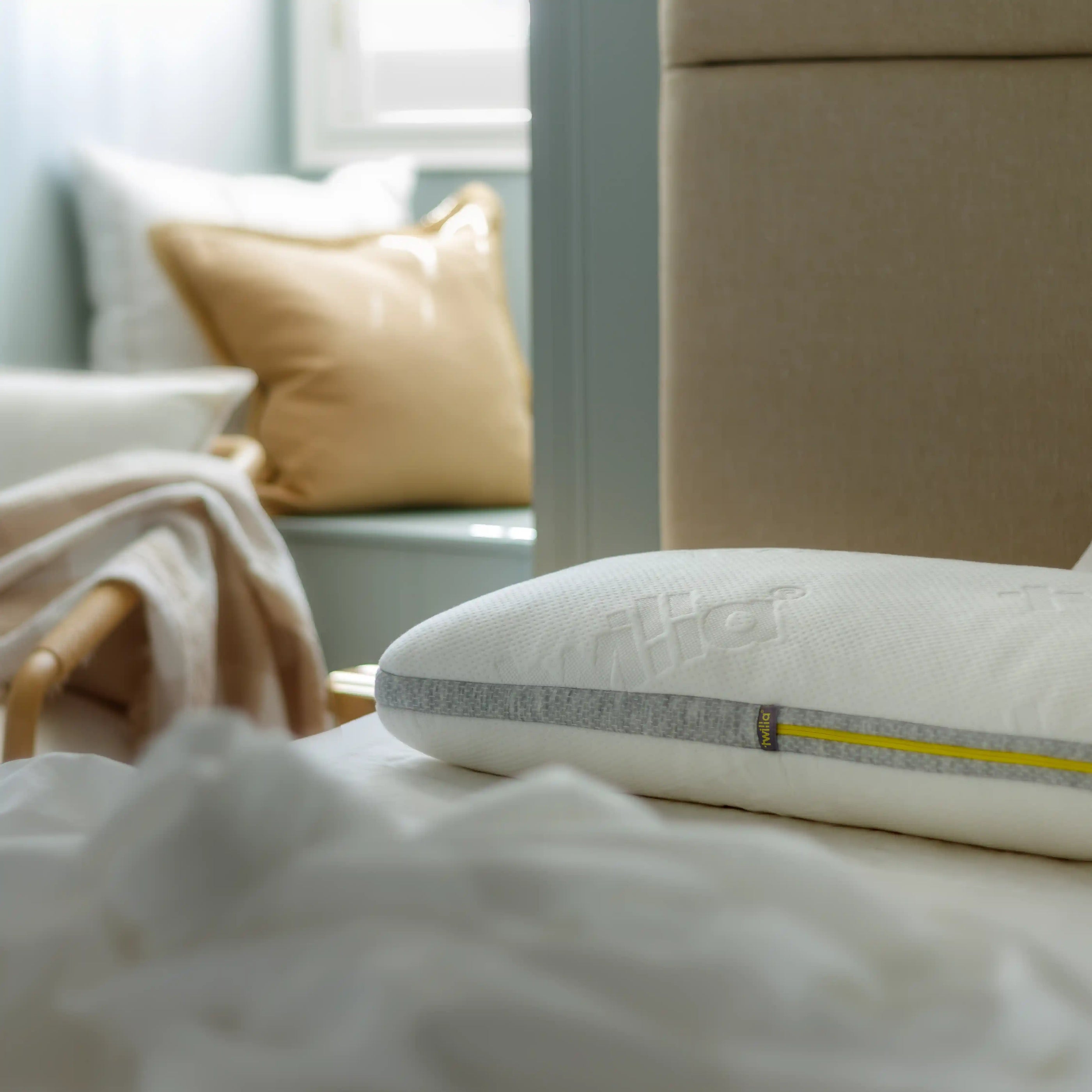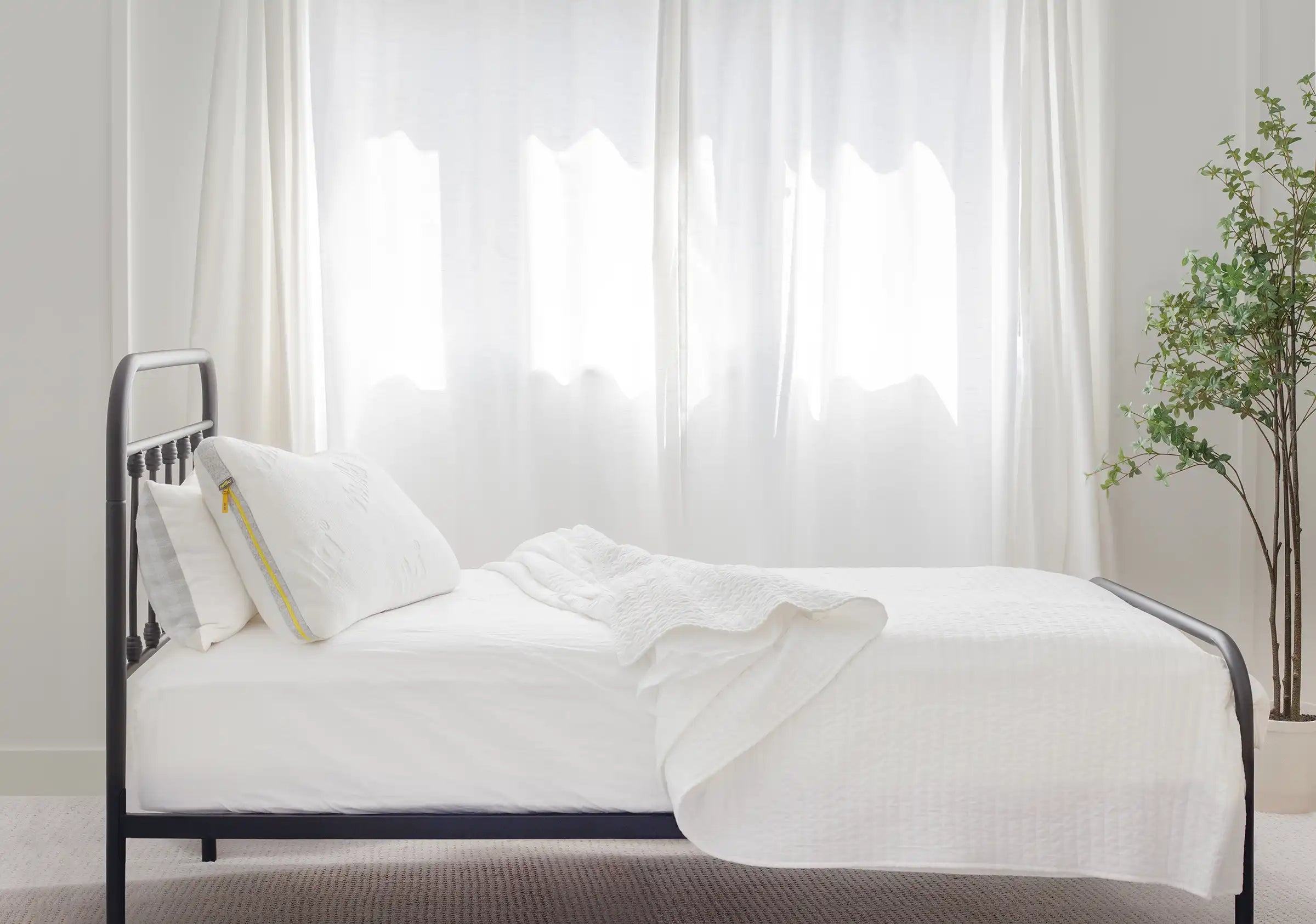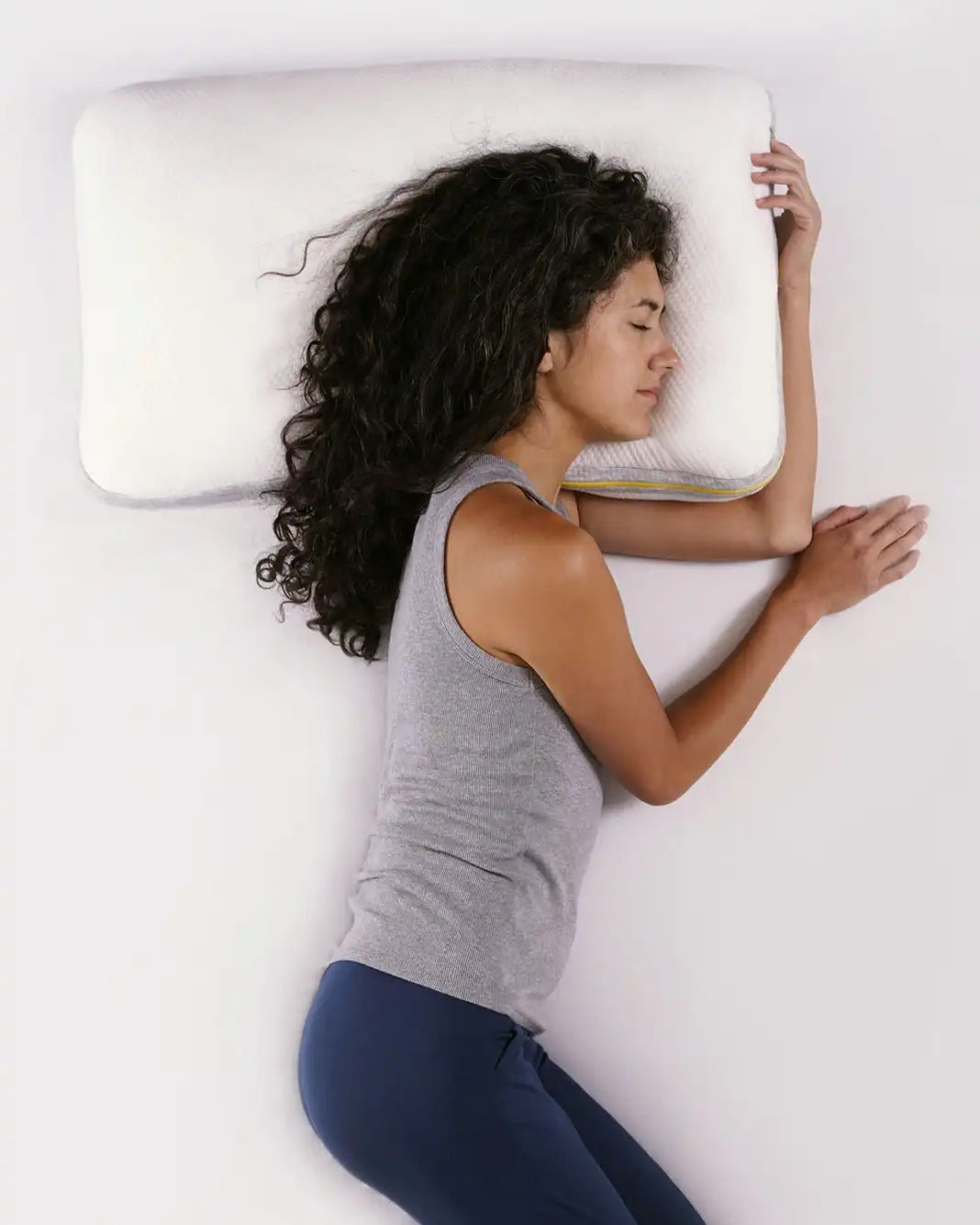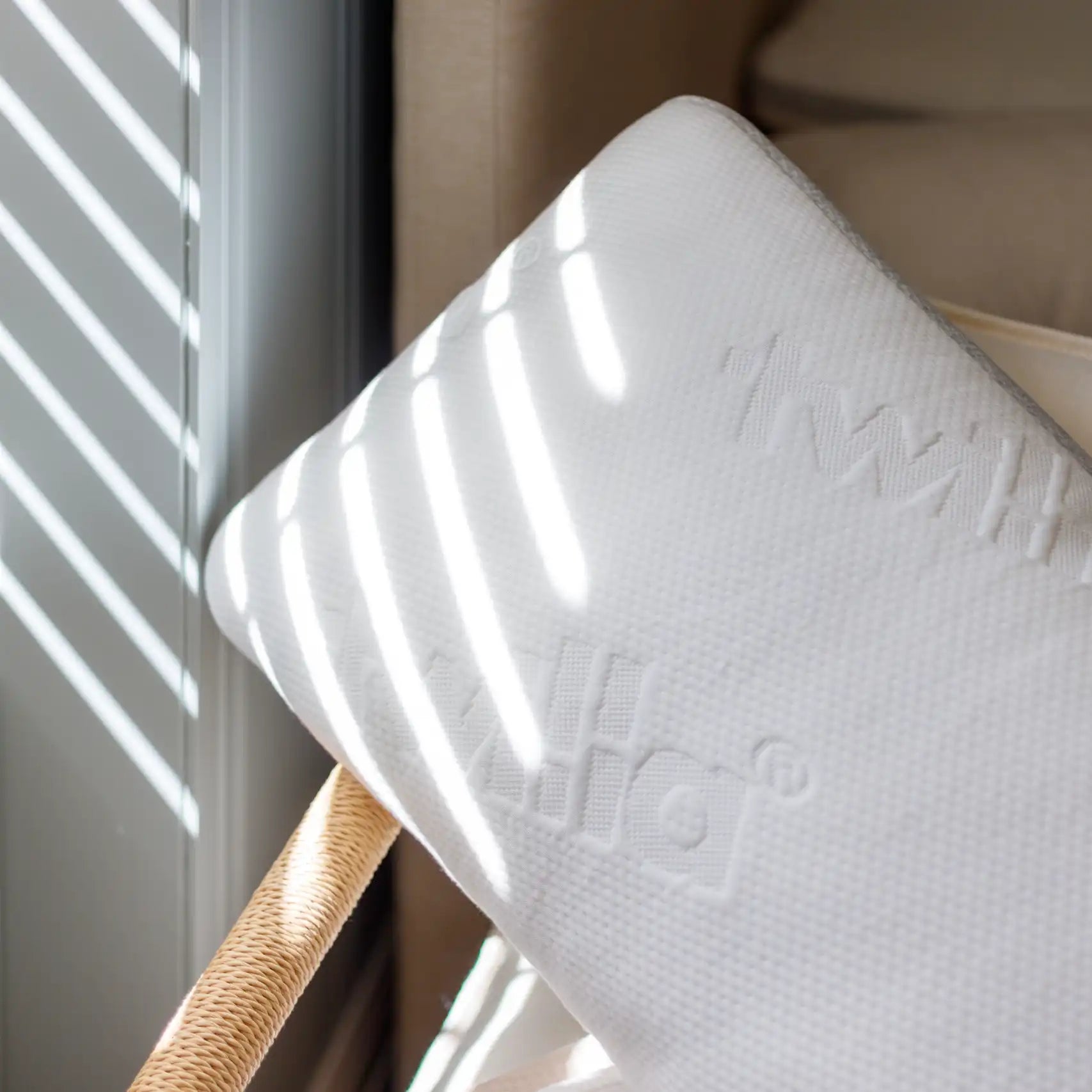Doctor Recommended:
Twilla promotes lasting relief by supporting healthy alignment and natural healing every night.
"As a Chiropractor, I’m always looking for a pillow that helps my patients with neck pain. No matter if you are a side, stomach or back sleeper, the Twilla Pillow will help you—it's the best pillow I have used."
Dr. Jord—Neck Pain Specialist & Chiropractor

"It matters what pillow you sleep on, you want a pillow that will exactly meet your orthopedic needs. We have a long list of checkboxes and the Twilla Pillow checks off every single box."
Michael Halliday, MSPT—Spine Specialist

"I love the adjustable feature which ensures comfort while keeping your neck in appropriate alignment. Its breathable fabric also allows sleep without discomfort from heat."
Founder of Restful Sleep MD.
Dr. Afolabi-Brown—Sleep Medicine Physician

“As a Chiropractor and I recommend Twilla pillows to my patients all of the time. The adjustable features allow my patients to perfectly align their spine."
Dr. Jared Croskey—Sports Medicine Chiropractic Specialist

Custom Support
Align your spine to eliminate neck pain with easy pillow height adjustability.

Orthopedic Adjustments
Say goodbye to nightly discomfort with tailored neck support.

Adapts to you
Adjust one half of your pillow for side sleeping and the other for back sleeping—for the best sleep of your life.

Cradling Comfort
Add extra support to both sides of the pillow for cradled support and sleep like a baby.

One Pillow =
Personalized comfort for any sleeping position, body type, and comfort preference.
Problem:
Most pillows have incorrect pillow height and lack proper neck support for a good nights rest.
Solution:
Twilla is the only pillow that solves both—with adjustable pillow height and custom orthopedic neck support.

Hybrid Filling
Soft down alternative + Supportive foam
Adjustable Pods for Personalized Support
Easy access zipper for customization
Tencel Fabric exterior—moisture wicking anti-mold

Proven Results
Up to 25% deeper sleep with a Twilla Pillow and better recovery scores in sleep study.
Sleep Study Results
Over a 28-day period, 20 adults ranging in age from 24 to 75 tracked their sleep using the WHOOP Health & Sleep Tracker—a leading tool used by athletes, professionals, and sleep scientists alike. Participants spent between 14 to 21 nights sleeping on the Twilla Orthopedic Pillow, and 7 to 14 nights using a different (non-Twilla) pillow.
The focus? Measuring the difference in Sleep Scores and Recovery Scores—two key indicators of sleep quality and physiological recovery.
Sleep Scores:
The WHOOP Sleep Performance Score measures overall sleep quality based on:
• Sleep Sufficiency (hours slept vs. hours needed)
• Sleep Consistency
• Sleep Efficiency
• Sleep Stress
Twilla users averaged an 89% sleep score, compared to just 78% with other pillows—a 12% improvement in overall sleep performance. Half of the users saw a 25% increase in deep sleep.
Recovery Scores:
WHOOP’s Recovery Score reflects how well your body has recovered overnight—factoring in heart rate variability (HRV), resting heart rate (RHR), and sleep quality.
Twilla users averaged a 76% recovery score, while the average recovery score on other pillows was only 63%—that’s a 17% improvement in nightly recovery.
Why We Trust the Data
Unlike generic surveys or subjective feedback, this study used objective, biometric data from WHOOP, a trusted health performance tracker. That means the results weren’t based on how users felt—they were based on measurable physiological improvement.
Over 5,000 happy customers
See what people are saying about the great sleep they have.
"I used to wake up feeling like my neck was broken, but not anymore. I take my twilla pillow everywhere I go, best pillow ever."
Kelly

"My Twilla Pillow is so comfortable, I've never slept so well. It's energizing my mornings with all of the sleep I'm getting."
Tom

"It feels like this pillow was made just for me. I made a few adjustments and it's great. I wake up feeling so refreshed now and the size is so perfect."
Vicky

"Twilla Pillow is the best pillow!"
Dr. Jord - Neck Pain Specialist & Chiroprator
"This is the coziest pillow I have ever found. I've seriously tried so many different pillows, and now I sleep so good with this one now. It has made life so much easier for me."
Heather

"This pillow is insanely comfortable. I only wish I would have known about this sooner."

"I didn't know how much my old pillow was messing with my sleep until I switched to the twilla pillow... my sleep lately has been amazing."
Michelle

"I had no idea that a pillow could make this big of a difference in my sleep. The adjustment pods are great."
Camryn

"This pillow is amazing! I've been sleeping so much better, you have to check it out."
Alyson

I purchased a Twilla pillow because I’m a side sleeper with some hearing hardware permanently implanted in my head. I have an abutment (titanium screw) on both sides of my head placed behind my ears. The pods cradle the abutments without putting pressure on them. The neck support is also amazing.
Mark

We understand your pain
“I used to wake up with neck pain every morning, so I was determined to design a pillow that anyone could adjust to fit their needs.” Peter—Twilla Founder
